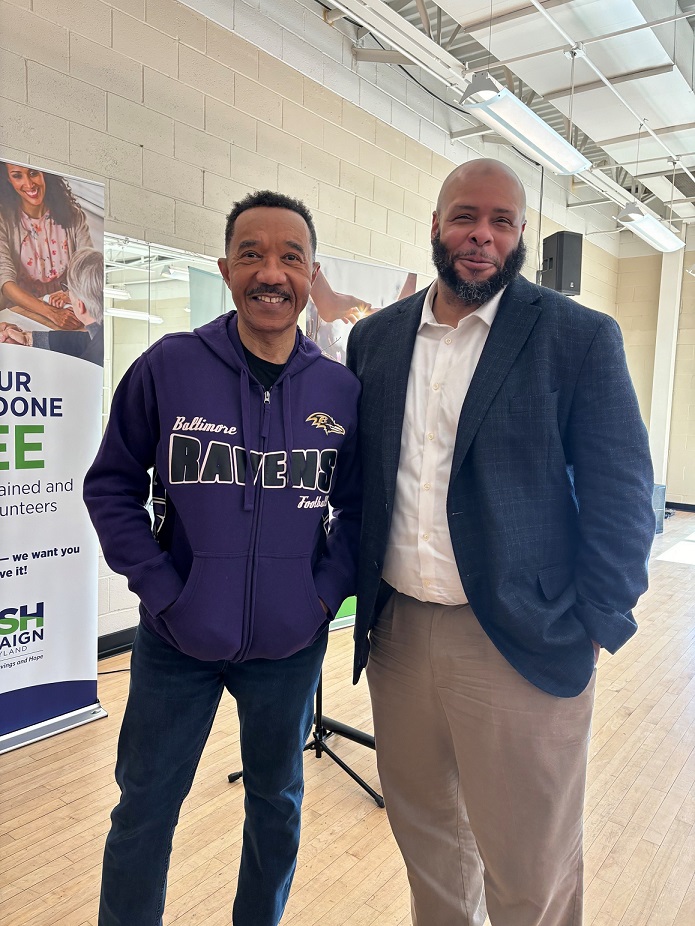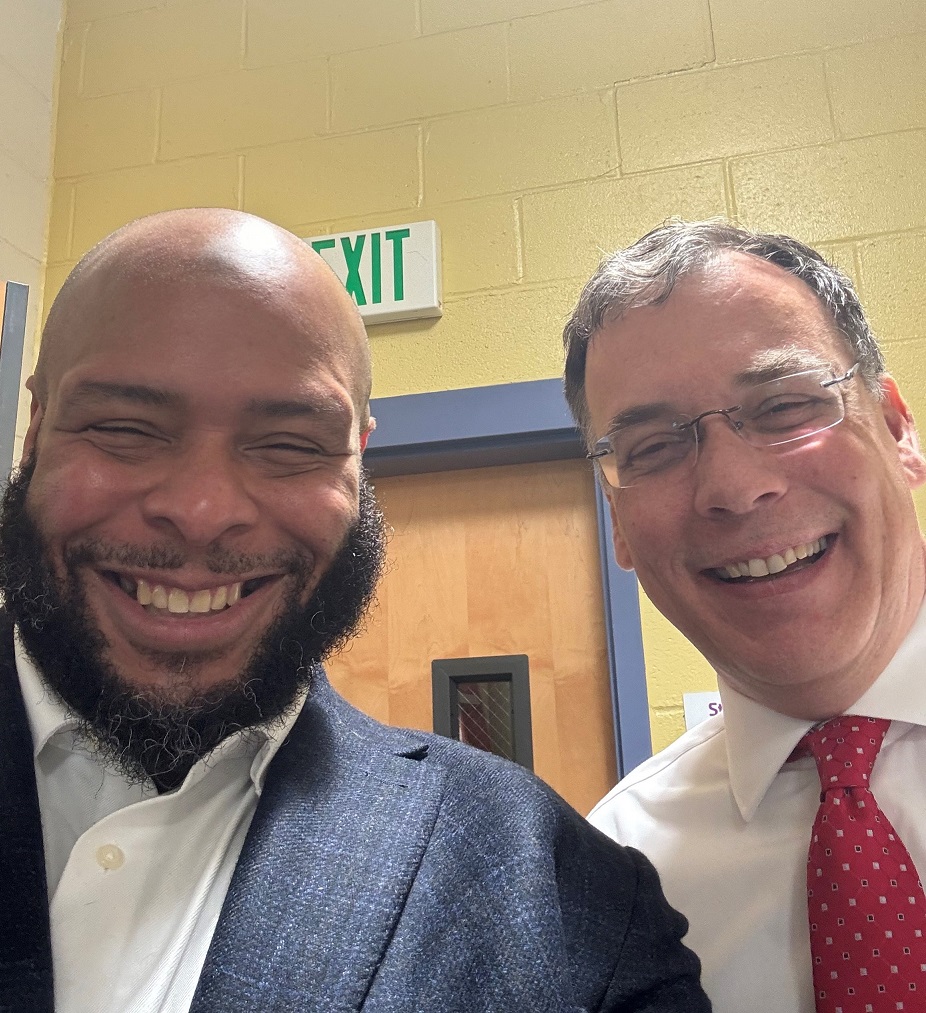Contributed by Mark Wilkerson, LITC Rule 19 Student Attorney


As we delve into another tax season, I had the honor to attend the highly anticipated Creating Assets, Savings, and Hope (CASH) Tax Season Kick-off event at the Weinberg YMCA in the Waverly neighborhood of Baltimore City. This gathering was an assembly of community, advocacy, and support. It served as a vibrant forum where the intersection of fiscal policy and human lives was both celebrated and scrutinized.
One of the most exciting aspects of the event was the opportunity to engage with a spectrum of change-makers, from local to federal politicians. Conversations buzzed with energy, ideas exchanged, and a sense of purpose resonated through the building. Among the distinguished, IRS Commissioner Dan Werfel stood out as he discussed the nuances of tax administration and its impact on communities struggling to stay afloat.
Commissioner Werfel’s genuine concern for the issues facing low-income taxpayers was palpable. Considering the complexity of tax laws and the bureaucracy that often enforces them, it was refreshing to speak with someone at the helm who acknowledged the necessity for the IRS to not just be a regulatory body, but a beacon of assistance for those most in need.
Additionally exciting points were the stories shared by individuals who had utilized these vital services. Tax assistance for low-income individuals has never been solely about refunds or liabilities—it’s about the stability and prospect for a better life. For many, addressing their tax responsibilities is only one part of the puzzle in their day-to-day struggle. The relief and assistance they get from tax services often lay the groundwork for meeting basic living needs, such as securing housing, food, and healthcare.
These stories are a testament to the critical work that goes on behind the scenes—work done by dedicated volunteers, community organizations, and even government agencies. They are the silent heroes who demystify complex tax codes and help navigate the intimidating corridors of bureaucracy.
Also, these narratives highlight the importance of community empowerment. When provided with the correct tools and guidance, individuals can leverage tax policies to their advantage, breaking the cycle of poverty and inching closer to financial freedom. This event was a reminder of that potential and the transformative power of knowledgeable, compassionate aid.
As I left the event, my heart was a little heavier with the weight of the stories I’d heard, but my resolve was also stronger. It reaffirmed my commitment to the cause of ensuring that everyone, regardless of income, should have access to the resources and support they need during tax season and beyond.
The kickoff was not just the start of a tax season—it was a reaffirmation of our collective responsibility towards each other. It was a clear message call to keep the dialogue active, the solutions creative, and the commitment unwavering. Together, we are shaping a system that not only tallies earnings and expenses but upholds the values of equity and respect.